Message sent successfully
Social engagement
Tamara Castrillo, architect: “Working with Manusa is synonymous with trust and peace of mind”
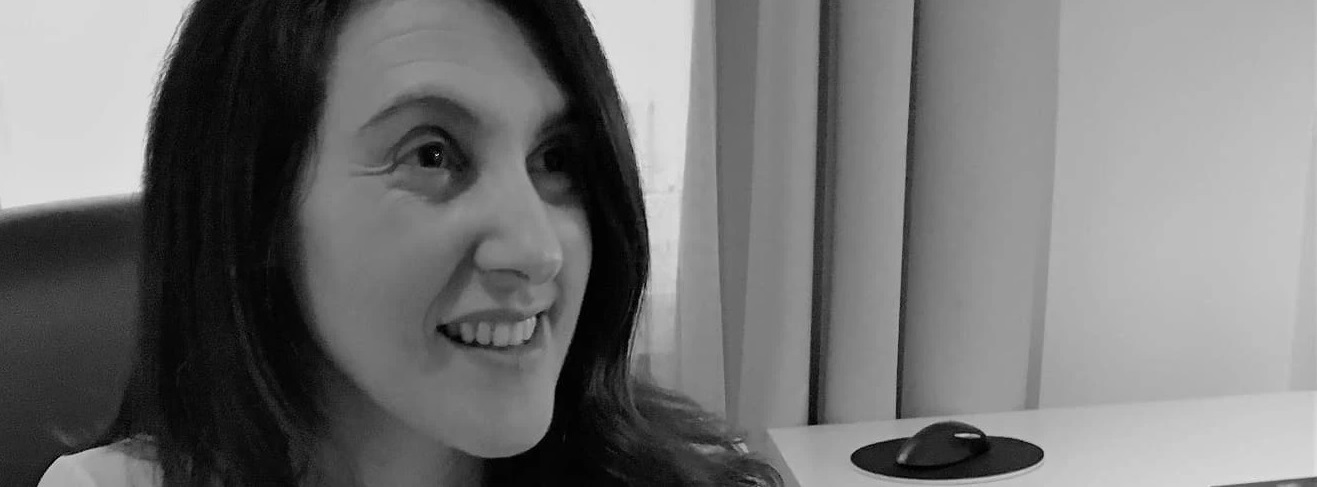
Habilita Estudio is an architecture firm in Oviedo (Asturias) with over 10 years’ experience in the area of spatial architecture and design.
Since its conception, it has participated in a wide range of projects, particularly specialising in turnkey renovation and conversion solutions.
Manusa has collaborated with Habilita Estudio on the development of automatic access for some of its projects, both in the hotel sector and in residential buildings.
Today, in Manusa’s blog, we are talking with Tamara Castrillo, the founding architect of Habilita Estudio, so that she can explain some of their architectural projects in more detail and how Manusa has been involved in them.
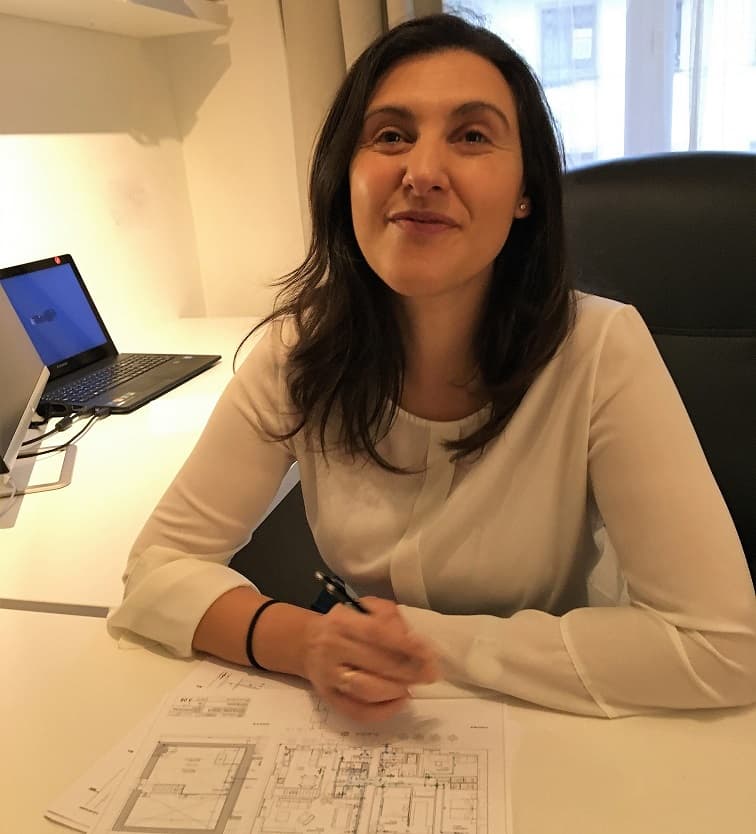
What are the aspects that you take into consideration when creating a new design? What is your creative process?
Understanding the client well and knowing the building very well.
Before any type of intervention, we carry out an exhaustive study of the building or home to understand its strong and weak points. We also listen to the client a lot, not only about what type of home they want but also anything that can help us understand their tastes and their needs.
Once we have enough information, we make the proposals that we believe will strike the chord between what the building can offer and what the client needs.
Our process always involves customising the building, because a healthy building that has been worked on well can offer much more than we imagine.
What are the values of your architecture have what does it seek to reflect?
Habilita Estudio’s architecture doesn’t only involve technical repairs or carrying out decoration work; we also always try to recover the spirit of the building, its beauty, its history, its identity and its utility but most important of all, we want the resulting space to be comfortable for the client, for it to be in harmony with their lifestyle and a place that makes them happy. This is our aim and our main commitment to our clients.
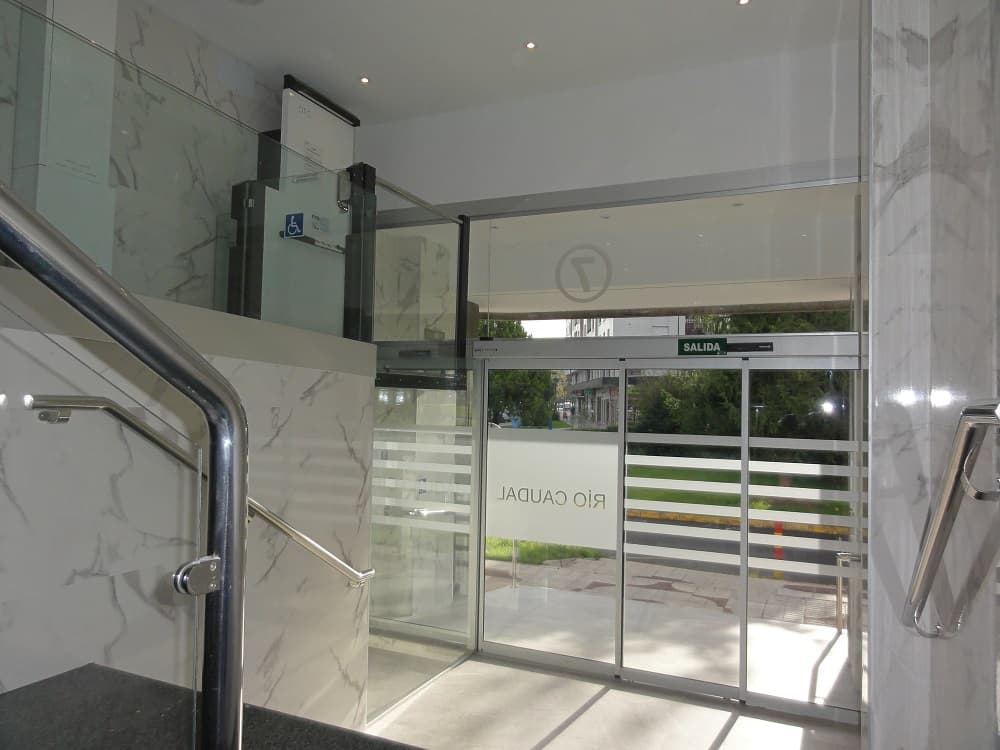
What does working with Manusa products mean for your firm?
For us, working with Manusa is synonymous with trust and peace of mind.
Both the sales staff and the engineers have always found solutions for any technical or design challenge that we’ve given them. And we always have the peace of mind that the product will be perfectly installed and integrated.
What projects have you worked on with Manusa? What characteristics do they have? Where were they? What products did you incorporate?
I usually work with Manusa on projects that are mainly residential, incorporating automatic doors in the entrances to residential buildings. On other occasions we’ve also worked together in the hotel sector.
I did my first project with Manusa in Gijón in 2011. We incorporated automatic doors as an essential part of a project involving accessibility refurbishment in four building entrances on Avenida de la Costa.
The Manusa Asturias branch has been a pioneer in the integration of automatic doors in the residential sector. This was one of the first installations of automatic doors in a residential building in Asturias. User satisfaction in relation to the automatic doors spearheaded many other residential projects. Currently in Asturias, unlike other autonomous regions, it’s very common to find automatic doors in entrances.
We have integrated several products: bi-parting, single slide and telescopic opening doors, RFID cards,etc.
For example, in our latest installation with Manusa, due to the entrance’s technical conditions, we installed an access with a pedestrian telescopic door to give greater clear width, and a single side opening door in the lift, integrated into the door opening. The arrival of the lift at height zero activates the opening of the automatic door, without having to open the door twice.
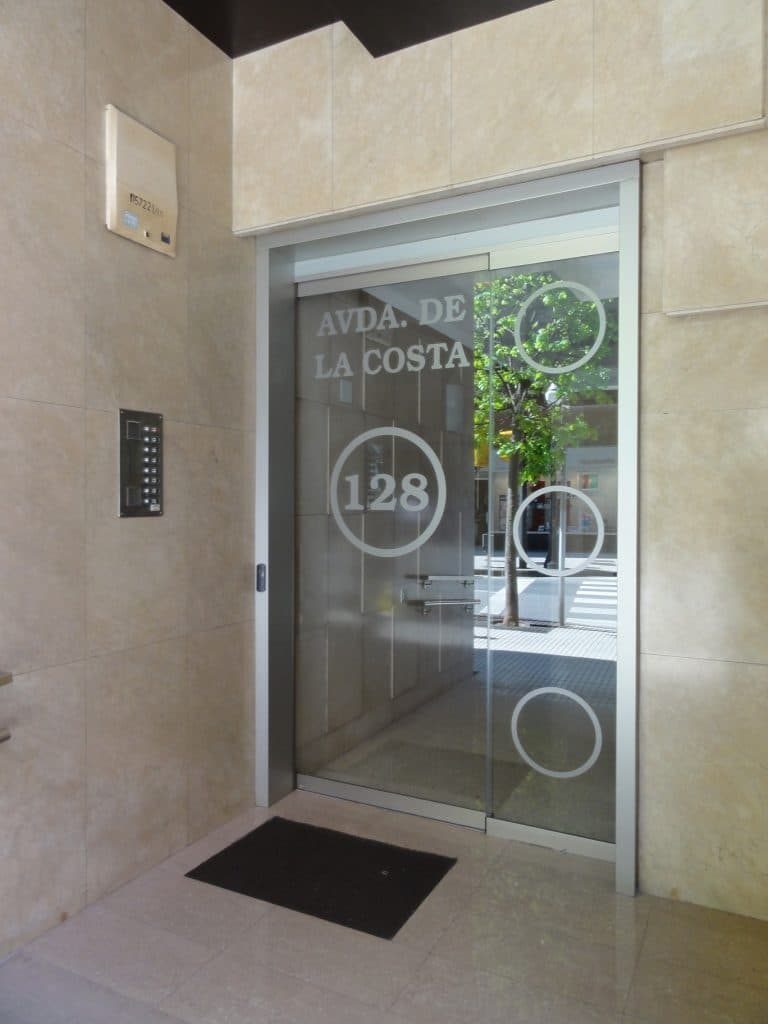
To what extent do you believe that Manusa's automatic doors and smart accesses make their projects more accessible? Do you believe that they make daily life easier for people, specifically, the disabled?
For Habilita Estudio, automatic doors are an essential element in refurbishing accessibility, as are ramps, lifts and handrails.
We always advise our clients to install automatic doors when refurbishing their entrances, since there is a big difference between opening a door with your hand and one that opens itself using a proximity sensor.
You don’t need to be in a wheelchair; anyone with a pram, crutches or carrying shopping bags can vouch for the convenience and independence that go hand in hand with an automatic door.
How do you see the future of architecture? Do you apply domotics to your projects or have you thought about applying it?
The Internet of Things is undoubtedly and increasingly tangible and real. Buildings, especially homes, are a hub of systems and technologies to which we want to be connected.
We are gradually becoming aware of the need for automation and domotics in our homes, since they are important in certain critical aspects of our daily lives, such as energy saving and safety.
How do automatic doors affect the design of architectural spaces? What value do you think they add both to design and technology?
One of the things I like most about automatic doors is the light they bring to indoor space and the much cleaner design lines.
Another big advantage in design is that you can achieve maximum clear width with an automatic door, which is really important in small spaces.
There are also many door solutions: single slide, bi-parting, telescopic, hermetic, lead-lined, evacuation, etc., which also permit interaction with other systems such as lifts or access controls. This means that it’s a really flexible product and that it can be adapted to a wide range of sectors and requirements.
Going forward, what effect could automatic doors have on businesses in terms of the public, especially in terms of hygiene and safety?
Right now, in any business or sector, having an automatic door is synonymous with safety.
I think that after all the lessons that the pandemic has taught us, the installation of an automatic door should be considered in any public or private access point that has a high level of transit (whether it’s a bar, restaurant, supermarket, shop, clinic or lobby) in order to reduce the risk of infection, since we know that one of the most effective methods of transmission of any virus is through touching surfaces. From now on, any form of automation will be important.
Why do Manusa products fit into your vision of architecture? Would you trust Manusa again?
There are several reasons why Manusa products fit into our architecture.
The technology integrated into the architecture must help and represent convenience for the users of buildings. In this sense, Manusa products clearly help, both in terms of accessibility as well as hygiene and convenience.
Customer satisfaction with the product installed, its operation and technical support are other reasons why we recommend Manusa products.
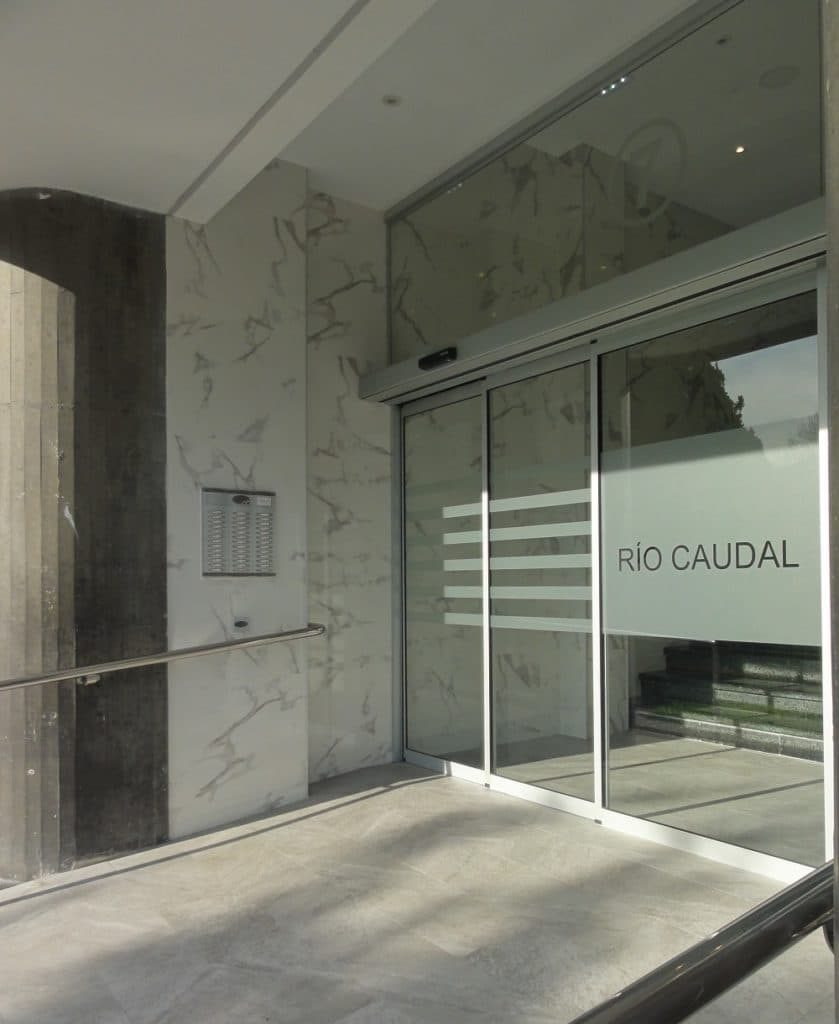
How does your architecture firm help to make a building happy?
By knowing it very well and solving its problems and shortfalls and converting it into the best ally of its inhabitants.
Although we’re don’t realise it, being in a space which feels safe and agreeable makes us calm and happy. Happy buildings. Happy people.
We know that you still hold the Spanish Christmas tradition of The Three Kings close to your heart. If you had them in front of you and they gave you one single wish for the whole of your life, what would you ask for?
Without a doubt, I’d ask for health for my family and friends. Everything else comes and goes but without health, we can’t do a lot.
